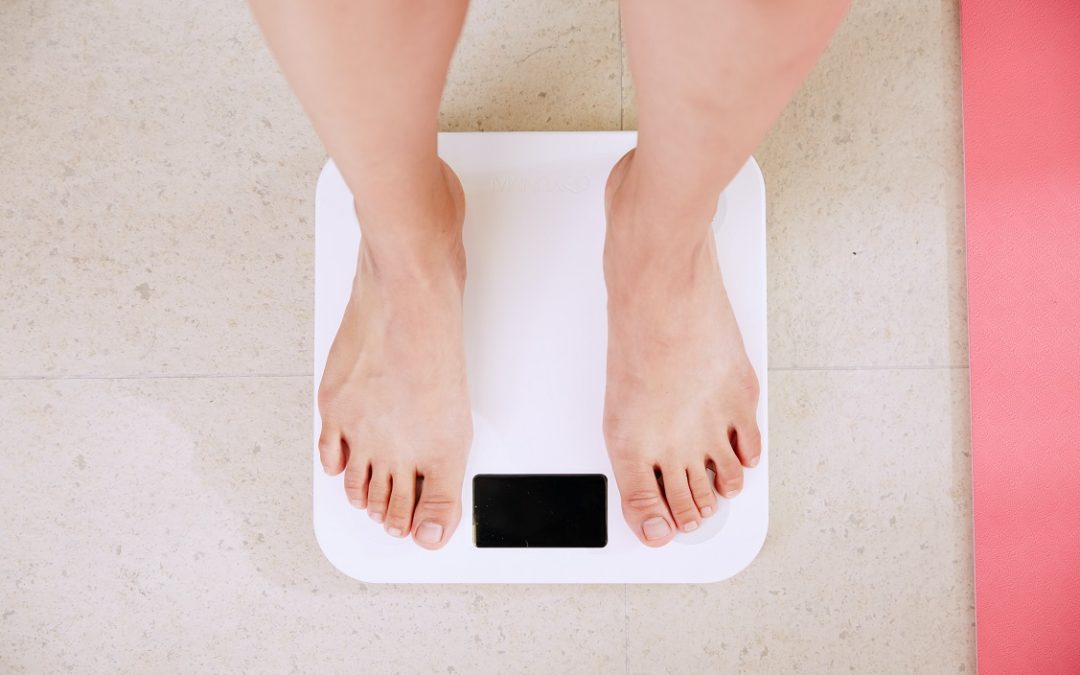
by David Minishian | Apr 20, 2020 | Nutrition
The sure fire method to lose weight is reducing calorie intake. The scale proves it true every time.
But you know this already. It’s nothing new. The issue is that it’s not as easy as it sounds. To address the difficulty we’ve come up with countless ways to reduce our food intake: meal prepping, using smaller to go containers, buying off the fit menu, etc. It’s an endless painful struggle of eating less and checking the scale to see if it worked.
But it doesn’t need to be this way. Weight loss doesn’t need to be a terrible relationship with the scale.
For example, athletes manipulate their weight with ease all the time: wrestlers, boxers, body-builders, sumo-wrestlers, etc. Changing their weight is commonplace. In fact, it’s a requirement for their sport. When they step on the scale, it’s not a question of whether they lost or gained weight but by how much.
How do they do it?
The answer is they’ve spent time with food. They have studied how to use food as medicine, as a means to an end. They are educated on what food contains and how much they need to eat. In short, they count their calories, but it’s not the kind of counting that requires meticulous measuring and weighing before every meal. No, that would drive any person insane. Instead, they estimate their food intake at each meal and ensure it fits certain parameters. These parameters keeps their intake in check, almost guaranteeing success. I say almost because they need one critical skill to make it work that I’ll discuss below.
Is Counting Calories Practical?
Calorie counting is a widely known method of controlling food intake, but the methods used to do it effectively are not. Looking at calorie counting objectively we know it works, but from a practical standpoint many deem it too time consuming and tedious to fit into a normal lifestyle. This is where counting calories gets a bad wrap and is not properly understood.
Hard Way: The hard way is to count calories is tracking everything with exact precision. This is unnecessary. We aren’t in a lab. This isn’t a research study. The foods we eat change daily. Don’t fall into the trap that calorie counting is impossible. There is an easy way.
Easy Way: The easy way is to keep a rough running tally. At each meal estimate how many calories are in the meal and write it down. To determine the number of calories you should eat at the last meal of the day (dinner), use the following formula:
Daily Caloric Goal – Calories Eaten = Remaining Calorie Target for Dinner
This method takes 30 seconds per meal to implement. That’s not a lot of time for results. However, there is one piece to this puzzle still missing take enables you to implement this method quickly and that is the skill I mentioned above. The skill required is mastering the ability to accurately estimate the calories in food. This is an invaluable skill that makes calorie counting quick and easy, and I’m going to divulge exactly how to develop it.
Developing the Skill: Calorie Counting
For two weeks, pick 1 meal a day to weigh on a food scale. A bathroom scale will not provide the accuracy needed to do this. Our objective is to learn how many calories are in each portion of food using the weight of that food. Going through this process of weighing food will reveal an accurate picture of the calories in food. Continuing this process for 2 weeks will strength your ability to accurately estimate the foods you eat most often.
To properly practice this method, weigh each food individually and raw. Look at how many grams that portion weighs and compare it to the nutrition facts online. Nutrition label usually have two forms of measurements including volume and weight. Use the weight in grams to determine how many calories are in the portion weighed. Continue this process for each ingredient in your meal.
At the end you will be able to add up all the calories and make sure the meal fits within the calorie goal. Remember this process is about developing a better grasp of the calorie content in food, not weighing every meal for life. However, you should brush up now and then. It keeps you sharp.
Note: Some foods like grains or nut butters should be comparatively measured in a measuring cup or utensil and weighed. When you measure both ways, you’ll discover how to accurately use measuring cups and utensils. Also, don’t forget to try weighing oils. The difference between 80 and 140 calories is an easy mistake to make with a tablespoon.
The Aftermath
Once you’ve mastered the skill of estimating calories on the go, staying within your caloric goals will become second nature. The skill of estimating calories is worth its weight in gold, but it does require effort to learn. You need to practice or your goal of 1700 calories could end up to be 2200 calories with inaccurate estimates. In the long-term this method will help you maintain your weight and empower you to change it at will. This is how you use the scale to change your weight.
Want to lose weight using proven nutritional strategies? Check out our Nutrition Coaching.

by David Minishian | Nov 17, 2017 | Nutrition
Confusion on Diets
Right now I’m teaching high school students in a health academy class, and they are throwing nutrition questions right and left.
- “What type of diet is the best?”
- “What should I eat to lose weight?”
- “Should I avoid carbs?”
Tons of questions just like these are being asked….
I’m extremely excited to share and teach these young health professionals, but I’m slightly dismayed at how much confusion there is around eating. I’m going to be honest…nutrition is not complicated.
It is not rocket science and you do not have to be a doctor to understand it.
Let me break it down for you…
What is a Diet?
A diet is what you eat. It’s that simple.
Some people eat overwhelming amounts of fast food; some only eat plants.
There is no perfect diet made for every person, but there are bad diets. Diets most people should never touch~ even with a 10 foot pole.
Like the McDonald’s diet…I’m sure most people have heard of Supersize Me and the catastrophic effects fast food had on the participant’s body. Albeit this is an extreme example, this is a type of diet.
Diets also include…
Low Carb, High Carb, High Protein, Low Fat, High Fat, Low Calorie, High Calorie, Vegetarian, Vegan, Omnivore, Carnivore….heck there is even Fruitarian (they only eat fruits and some nuts/seeds).
Which diet from this list do I advocate for? Which diet is the best?
The Best Diet
NONE…Yes I said none…
In most cases, a BALANCED DIET is the best diet; however, an honest and knowledgeable nutrition professional will tell you that some people have better results with different diets.
No two people are the same. Even twins have differences.
How do you know which diet is best for you? Well, that depends on your goals and your genetics…
Since genetic testing is a bit extreme and won’t make a huge difference. I base my advice on a balanced diet tailored to a specific goal and a specific person.
- Are you a runner?
- Are you seeking to build muscle?
- How much do you weigh?
- Male or Female?
- Lean Body Mass?
- Body type?
- …Etc….
There are numerous factors that can influence which diet is best for you.
However, a balanced diet is a good place to start.

by David Minishian | Nov 17, 2017 | Nutrition
No Coffee Shops
Currently, I’m studying at a Seventh Day Adventist University and coffee shops don’t exist on campus. It’s a little strange for a place where students are studying 24/7.
Well, the school’s founding principles advocate to avoid stimulants of any kind~ coffee included.
Since I’m a nutrition student bringing a cup of coffee to an Adventist university every day, I got a little curious. Am I a blasphemous nutrition student? Should I be staying away from coffee?
At this point, I’ve been drinking coffee on campus for a year and no one has refuted it yet. And I doubt anyone will. The environment here is inclusive and open to discussion. With this in mind, I did my research and gave an in class lecture concerning the benefits of coffee on cardiovascular disease.
Ironically, the presentation after me was on the benefits coffee had on weight loss…
Inside Scoop on Coffee
Let me give you the inside scoop on poor, misunderstood coffee.
In the short term, like hours, coffee raises your blood pressure. This concerns doctors since high blood pressure is associated with strokes, heart attacks, etc.
High blood pressure is spreading like wildfire. In fact it impacts 1/3 of adults in the US (1) and it was the primary cause of death for 61,762 Americans in 2009 (1).
But according to several research studies, coffee isn’t causing it. Coffee has actually been shown to lower blood pressure over the long term (months to years).
Here’s the theory.
During and after consumption, coffee raises our blood pressure. However, when we consume coffee every day for 3 months or more, our body starts to fight back by lowering our overall resting blood pressure.
For example: If your blood pressure is 145/85, it may lower to 130/75 after 3 months of consistent coffee consumption.
This is your body’s built-in safety mechanism, activated by drinking coffee.
Pretty amazing right? I thought so…
Research has also suggested that coffee contributes to weight loss, lowering the risk of type 2 diabetes, lowering the risk of Alzheimer’s Disease, improving physical performance, etc.
Based on research the most effective intake ranged from 2-4 cups of coffee a day. Because like most things, moderation is key.

by David Minishian | Nov 17, 2017 | Nutrition
Over the years as a trainer I’ve heard all kinds of ridiculous claims regarding the amount of protein needed to build muscle.
Although the obsession with protein intake is a bit over done, protein is necessary for the body to function properly, especially when the body is repairing from a strenuous workout.
When deciding how much protein to consume you should account for four factors:
- Weight
- Activity Level
- Age
- Pregnancy Status
Using these factors to reach a customized protein intake recommendation is better than using percentages to determine macro-nutrient splits (Protein, Fat, and Carbs).
Some fitness gurus recommend dividing up your calorie intakes with percentages, “Eat 50% Carbohydrates, 30% Fat, and 20% Protein”.
However, basing a person’s nutrition on arbitrary percentages is not an adequate recommendation. It’s a one-size-fits-all formula.
A percentage split is no better than guessing.
For Example: With a weight of 170 lbs and a goal weight of 135 lbs, a good calorie target would be 1700-1800 calories a day. Following the one-size-fits-all formula of 20% protein results in only 85-90 grams of protein a day.
In this example the percentage recommendation is potentially short by 30-45 grams depending on the four factors listed above: weight, activity level, age, and pregnancy status.
Inappropriate recommendations could have consequences.
Too low of a protein intake would delay recovery times between workouts, inhibit protein synthesis (muscle building).
Too high of a protein intake creates an unbalanced diet, which can have a variety of effects.
So how much should you consume?
If you leave a comment below with your weight, activity level, sex, age, and pregnancy status. We’ll get you an answer within 24 hours.
Nutrition plays a huge role in your health, so don’t let proper nutrition be a guessing game. The wrong choices can destroy your chances of having success.



